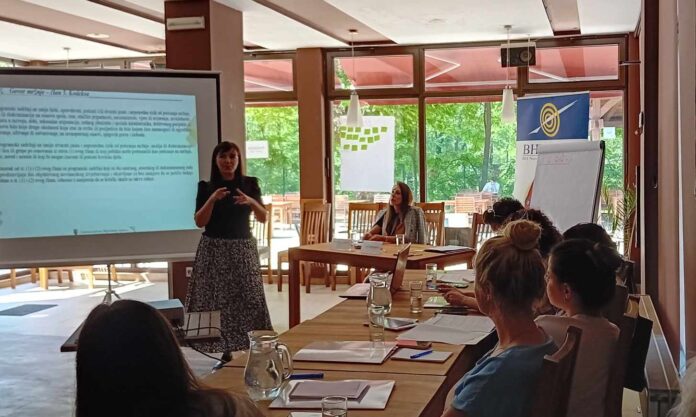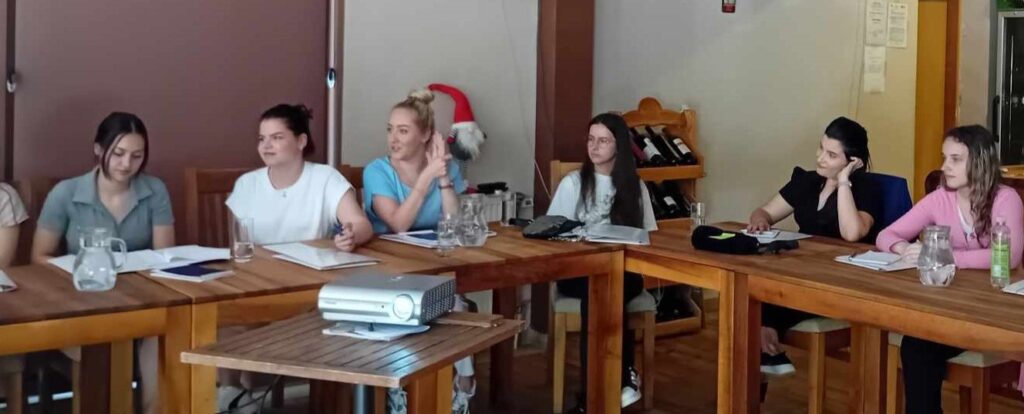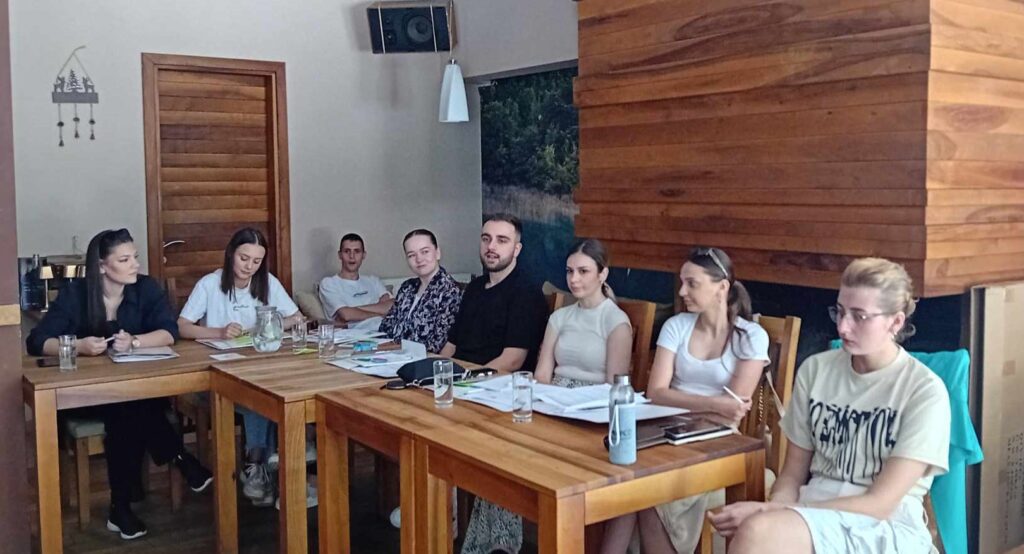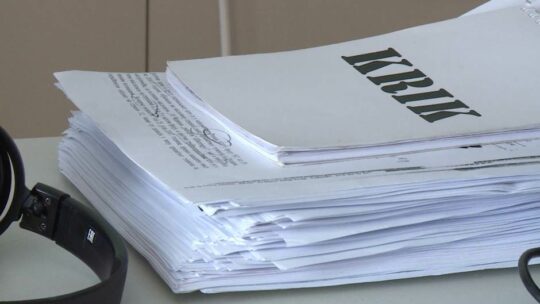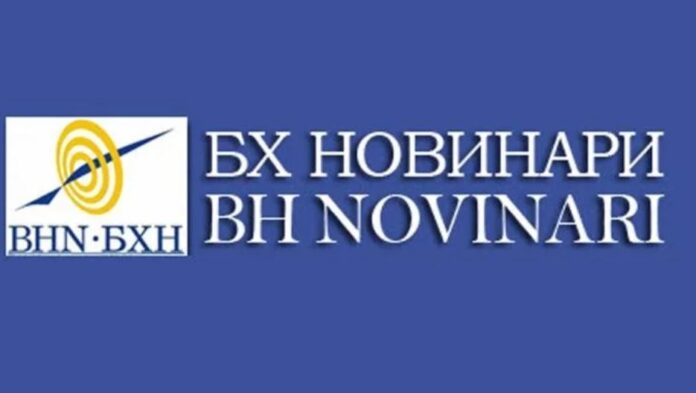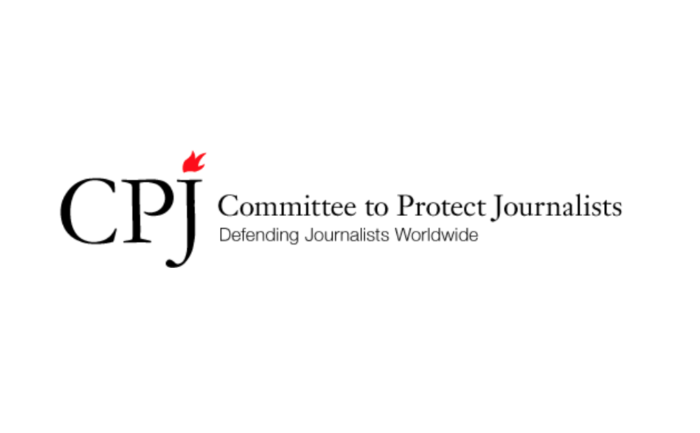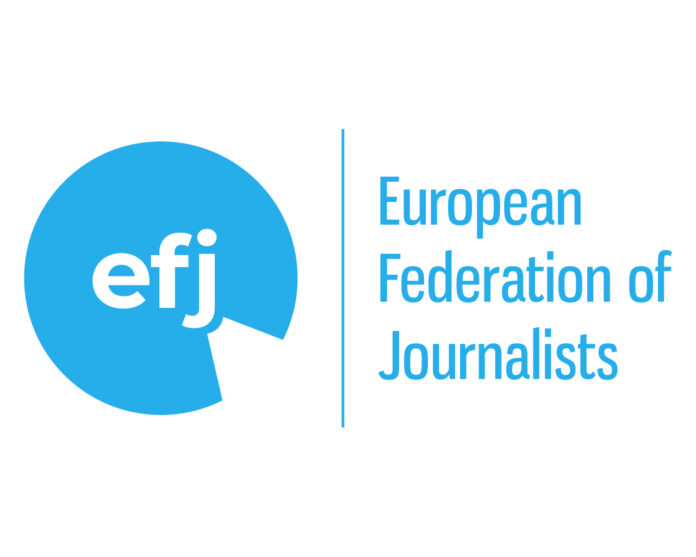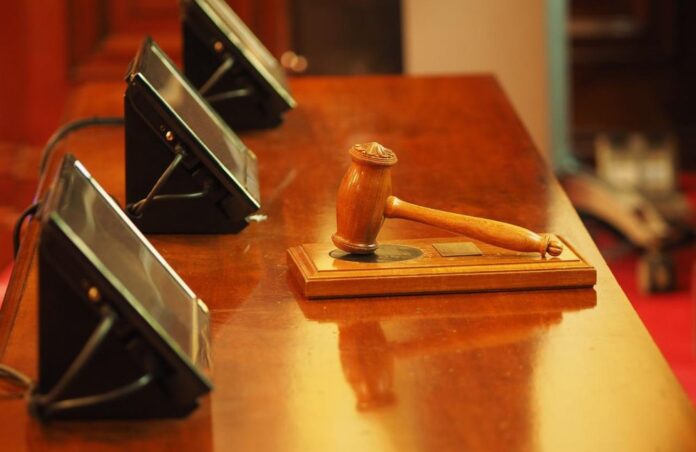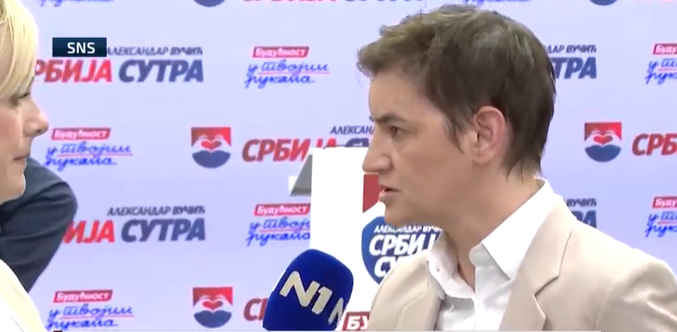Judge of the Court of Appeal in Belgrade Dušanka Đorđević has filed two lawsuits against KRIK over the database “Judge Who Judges” in which we investigated Serbian judiciary, including her work. In the lawsuits she filed together with her husband for alleged violation of the right to privacy, the judge seeks not only monetary compensation but also a two-year occupational ban for KRIK journalists and 10 months prison sentences. In the lawsuit, Judge Đorđević – known for being a member of the panel that acquitted the accused for the murder of Slavko Ćuruvija – claims that KRIK journalists are “putting a target” on her and helping criminals find her. KRIK considers this an unprecedented pressure on media and an attempt to prevent journalists from reporting on the work and integrity of judges.
Judge Dušanka Đorđević and her husband, lawyer Aleksandar, have filed civil and criminal lawsuits against KRIK journalist Bojana Pavlović and editor Stevan Dojčinović. The former seeks damages of 760,000 Serbian dinars (approximately 6,500 EUR), and the latter demands that Pavlović and Dojčinović be sentenced to 10 months in prison and a two-year ban on practicing journalism.
The lawsuits were filed because of the judge’s profile published in the “Judge Who Judges” database, which KRIK has launched at the end of 2020 to increase transparency of the judiciary in Serbia. The database was created precisely to inform citizens about the work of the judiciary and nothing that could endanger the safety of judges was published in it.
Despite this, Judge Đorđević claims in the lawsuits that the journalists violated her privacy by publishing her name and position in the Belgrade Court of Appeals, as well as information about the properties she owns with her husband. She even claims that KRIK journalists have put her in danger and are helping criminals to find her.
“The accused, by publishing data prohibited by our law, call for a public lynching of those judges who fight on a daily basis to remove members of organized crime from our society, and at the same time mark them and put targets on them and their families so that members of organized crime can easily identify and find them,” the lawsuit states.
It is also claimed that KRIK journalists work “under the guise of a noble goal of fighting crime” in an “unregistered” media outlet – although the KRIK portal is registered in accordance with the law.
“This is perhaps the biggest pressure on KRIK so far, but these lawsuits indirectly threaten all other media in Serbia. We are being sued by a high-ranking judge who claims that we should not have published even her name, so we are now in a position to defend not only our work but also the legal right of journalists to write about those in power,” says KRIK Editor-in-Chief Stevan Dojčinović.
“Citizens must be aware that these trials will actually decide whether journalists in Serbia will be allowed to even mention judges, let alone criticize or analyze their work. This is why we see these lawsuits as a direct suppression of media freedoms because monitoring the work and assets of state officials is one of the basic journalistic tasks”, Dojčinović explained.
Nine Properties of the Judge and Her Husband
In the profile of Judge Dušanka Đorđević in KRIK’s database, there are details about her career progression in the judiciary, key court cases she has adjudicated, as well as the information about the properties she owns with her husband – five apartments, two garages, business premises in Belgrade and land near Bajina Bašta (small town in Western Serbia). KRIK did not publish the address of any of these properties, thereby not endangering the safety of the judge or her husband.
Before publishing her profile in the database, KRIK journalists have contacted Judge Đorđević and gave her the opportunity to respond to our findings in detail and explain how she and her husband acquired their assets. She refused and in a written response stated that journalists have no right to deal with that topic and that doing so constitutes a criminal offense.
For Judge Đorđević, appearing in KRIK’s database is certainly not the first encounter with the public.
She became a judge of the Fourth Municipal Court in Belgrade in 2005. She was also a spokesperson for this court, so communication with journalists and appearing in the media were part of her daily job. Đorđević was promoted to the Higher Court in Belgrade in 2010.
That year, she came under media attention due to an unusual case: she married a lawyer who represented the accused in a case she was supposed to adjudicate.
Her current husband, Aleksandar Đorđević, at the time was defending a young man accused of killing a policeman with a car and fleeing afterwards. The judge and the lawyer got married about ten days before the trial began.
Đorđević requested to be recused from the case, which was granted. However, the family of the deceased and their lawyer claimed that the judge deliberately delayed the case and that at the time she scheduled the trial, she already knew she would marry the lawyer but did not inform them.
The judge’s husband, besides being a lawyer, owns several companies engaged in debt collection. Additionally, the Serbian government appointed him as a member of the supervisory board of the „Kirilo Savić Research and Development Institute“ from July 2013 to May 2014. In recent years, Đorđević has also been engaged by the Development Fund managed by the Treasury Administration of the Serbian Ministry of Finance.
Đorđević became a judge of the Belgrade Court of Appeals in 2020, in the Special Department for Organized Crime.
She is known for being a member of the panel that acquitted those accused of killing journalist Slavko Ćuruvija. She was also a member of the panel that overturned the conviction of former mayor of Grocka (Belgrade suburb), Dragoljub Simonović, for setting on fire the house of journalist Milan Jovanović in 2021.
Recently, Đorđević confirmed the acquittal of Zvezdan Terzić, General Director of the Red Star Football Club, who was accused of illegally appropriating money from the sale of football players.
She was also a member of the panel that in January last year confirmed the acquittal of former Minister for Environmental Protection Oliver Dulić.
Đorđević is one of the judges who in the spring of 2022 increased the sentence of former member of the Zemun Clan Aleksandar Zdravković for the attempted murder of businessman Milan Beko from nine to 13 years in prison.
Why It Is Important for the Public to Know About Judges
“Adopting lawsuits such as these ones agaist KRIK would be a verdict against journalism and it would send a signal to all journalists not to dare to write about judges,” says Dojčinović.
“This is also about endangering the transparency of Serbian judiciary because our database ‘Judge Who Judges’ has made great progress in that direction and gave citizens a chance to be informed about the work of important judges, and these lawsuits could take that away from them. We are particularly concerned by the fact that the lawsuits were filed by a judge whose job should be to recognize and stop SLAPP lawsuits, not to initiate them against journalists and seek their imprisonment”, concludes Dojčinović.
KRIK has been following the most important trials in Serbia for years, investigating the judiciary and fighting for the transparency of this branch of government. For this reason, in 2020, KRIK created the online database “Judge Who Judges,” which contains information about judges, as public officials about whom citizens knew very little.
To date, KRIK’s database has produced profiles of 51 judges containing information about their careers, the most important court cases they have handled, as well as about proceedings conducted against them and the assets they own. The database does not contain any information that could in any way endanger the safety of judges or their family members. Journalists obtained all data through official channels and found it in official databases and, before publishing, each judge was contacted for an interview or comment. One third of those contacted responded, either by accepting to be interviewed or by answering the reporters’ questions.
A global journalistic award, “Sigma,” which was previously awarded to KRIK’s database, speaks to the value and significance of this database. The international jury noted that “judges, their actions, and wealth are some of the best-kept secrets in Serbian society” and that KRIK’s persistent reporting managed to reveal what is behind controversial decisions that have affected citizens for decades.
Lawsuits seeking to sentence journalists to prison and ban them from practicing journalism for two years for writing about the work of judges in a democratic country are a clear pressure on media freedoms.
It is particularly concerning that this time the pressure comes from a judge who adjudicates some of the most important organized crime cases and who should have a higher level of tolerance for the public’s interest in her work.
Source: KRIK


